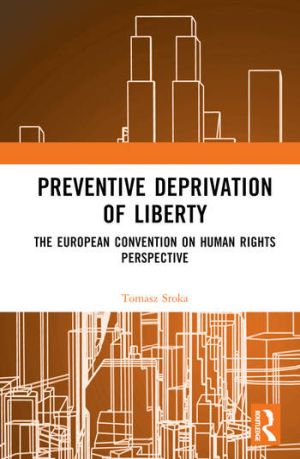
This book analyses and reconstructs the European Convention on Human Rights standard of application and execution of preventive deprivation of liberty. Acts of international law were drafted at a time when guarantees for the protection of the personal liberty of individuals were primarily associated with custodial sentences. However, the essence, nature and purpose of preventive deprivation of liberty, which are fundamentally different from those of imprisonment, also require a different approach to the assessment of the minimum standard and guarantees for the protection of personal liberty and other rights and freedoms.
This work determines the minimum guarantees for the protection of liberty and other rights and freedoms of a person in determining the legal basis and procedure for the application and execution of this measure. It presents guidelines on how the substantive prerequisites for preventive deprivation of liberty and the procedure for its application should be constructed in order to meet the European Convention on Human Rights standards. It also provides guidance on how the conditions and rules for preventive deprivation of liberty should be organised in order to protect individuals from inhuman or degrading treatment, or disproportionate restriction of their rights or freedoms. Finally, the work also discusses how the lawfulness of the imposition or continuation of a measure of preventive deprivation of liberty should be reviewed.
The book will be of interest to academics, researchers and policy-makers working in the areas of Constitutional, Criminal, Medical and Human Rights Law.